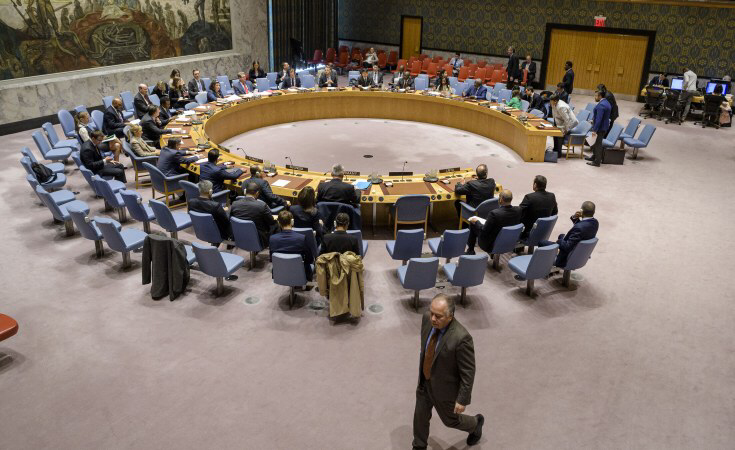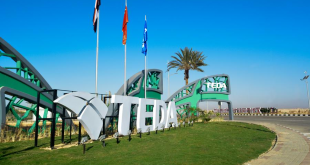By Aggrey Mutambo and Abdulkadir Khalif

UN Photo/Manuel Elias(file photo).
The UN Security Council on Monday night endorsed an extension of sanctions on Somalia for another year, in spite of calls by Mogadishu to take charge of its own security reform.
Resolution 2607/2021 extends sanction regime 751 on Somalia, which have been in place for nearly 30 years, and have been amended by subsequent resolutions.
Impact
The Monday resolution means that the UN Security Council will extend further controls on Somalia’s arms purchases to control smuggling of weapons, as well as regulating exemptions.
Kenya was among the 13 (of the 15-member Council) that endorsed the resolution, with China and Russia abstaining from the vote.
“By seeking and voting for these changes, Kenya expresses her continuing support of efforts to degrade the capacity of al-Shabaab to undertake its dangerous activities in the region that include terror attacks, recruitment and radicalisation into terrorism, and exploitation of Somali’s financial system to generate illegal revenue for terrorism financing,” said a statement explaining Nairobi’s stand.
The resolution was drafted by the UK and promised to support Somalia’s rebuilding project, including equipping of security forces and curtailing sources of funds and weapons for militant group al-Shabaab.
It expands protection to ‘maritime awareness’, tighter controls on financial transactions as well as illicit practices like charcoal selling and sale of materials used to make home-made explosive devices.
Ahead of the vote on sanctions, Somalia had been calling for an end to arms purchases as one way of allowing its military to reequip. Somalia has also opposed plans to extend the stay of the African Union Mission in Somalia (Amisom) or turn it into a hybrid Mission that will still include having troops and technical experts in the country.
Extending sanctions and changing the nature of Amisom are among the key decisions the Council is set to make before the end of the year.
In extending sanctions, the Council said Somalia’s state rebuilding had been hijacked by al-Shabaab, including infiltration in local institutions. It says the group must be targeted beyond the land as they have also exploited “maritime flows” and trafficked in licit and illicit goods that may finance terrorist activities in Somalia.
Hybrid mission
Somalia last month opposed the decision by the African Union Peace and Security Council to endorse a hybrid format to replace a purely combat Amisom. As it is, the new format will be adopted if the UN Security Council also endorses it later this month.
Last week, during a tour of the AU Peace and Security Council in Mogadishu, Somalia told the 15-member AU body that it was interested in less foreign forces but more support to elevate their nascent security teams to guard the country as well as other government departments to provide services to the people.
“What will not be accepted by the Somali nation is foot-dragging, misrepresentation and delays that hinder the implementation of a successful security transfer from an AU mission to Somali security forces,” Somalia said, according to a statement shared with the media.
“You see here, the Hybrid option you chose brings more troops while the STP (Somali Transition Plan) we (The Somali government) want reduces the current force and this is the biggest difference we have,” added Mohamed Abdirizak, the Somali Minister for Foreign Affairs and International Cooperation.
“We want less force, NOT more.”
AU’s idea of a hybrid mission, which was also endorsed by the five troop contributing countries, sees an expanded Amisom, paid and sustained by the UN and which includes military and non-military components including humanitarian and technical experts.
Somalia protests
But Somalia says this could hinder growth of its local forces, making it difficult to develop areas liberated from al-Shabaab as well as making the country dependent on foreign security support.
In Somalia’s Transition Plan (STP), Mogadishu is seeking that an arms embargo be lifted to allow it to purchase and equip its troops with modern equipment. Under the partial embargo in place, Somalia can purchase certain weapons only if the sanctions committee of the UN Security Council approves the request.
The Federal Government of Somalia (FGS) has indicated it wants the Transition Plan because it gives clarity on how the country can formally part ways with Amisom after a successive changeover by 2023, the time it thinks it will be fully ready to handle own security needs.
The AU-PSC had endorsed the AU-UN hybrid mission deployed under Chapter VII of the UN Charter that is said to ensure predictable and sustainable multi-year financing for the future mission, through UN assessed contributions as stated in the approved document.
Nevertheless, the FGS expressed its preference on a quick exit of the more than 20,000 AU peacekeepers that have helped the government to hold its grip on important parts of the country and degrade the extremist group.
Amisom troops come from Kenya, Uganda, Burundi, Ethiopia and Djibouti, all of who have endorsed the hybrid format.
The influential Coalition of (the opposition) Presidential Candidates -CPC, a grouping of more than a dozen top politicians, supported the exit of Amisom. The group is led by former president Sharif Sheikh Ahmed and membership includes former president Hassan Sheikh Mohamoud and ex-prime minister Hassan Ali Khaire.
“AU-UN mission in Somalia deployed under Chapter VII of the UN charter is short-sighted, ill-advised, and alarming. It openly contradicts the very purpose of the AU and UN in Somalia,” the CPC statement says.
“It became clear to many Somalis, that the proposed plan takes agency away from the Somali state after 14 years of failure by the Amisom in achieving its stated mission, lacks local input and did not consider Somalia’s legitimate rights to sovereignty and territorial integrity.”
The East African
 Africa -China Review Africa -China Cooperation and Transformation
Africa -China Review Africa -China Cooperation and Transformation
